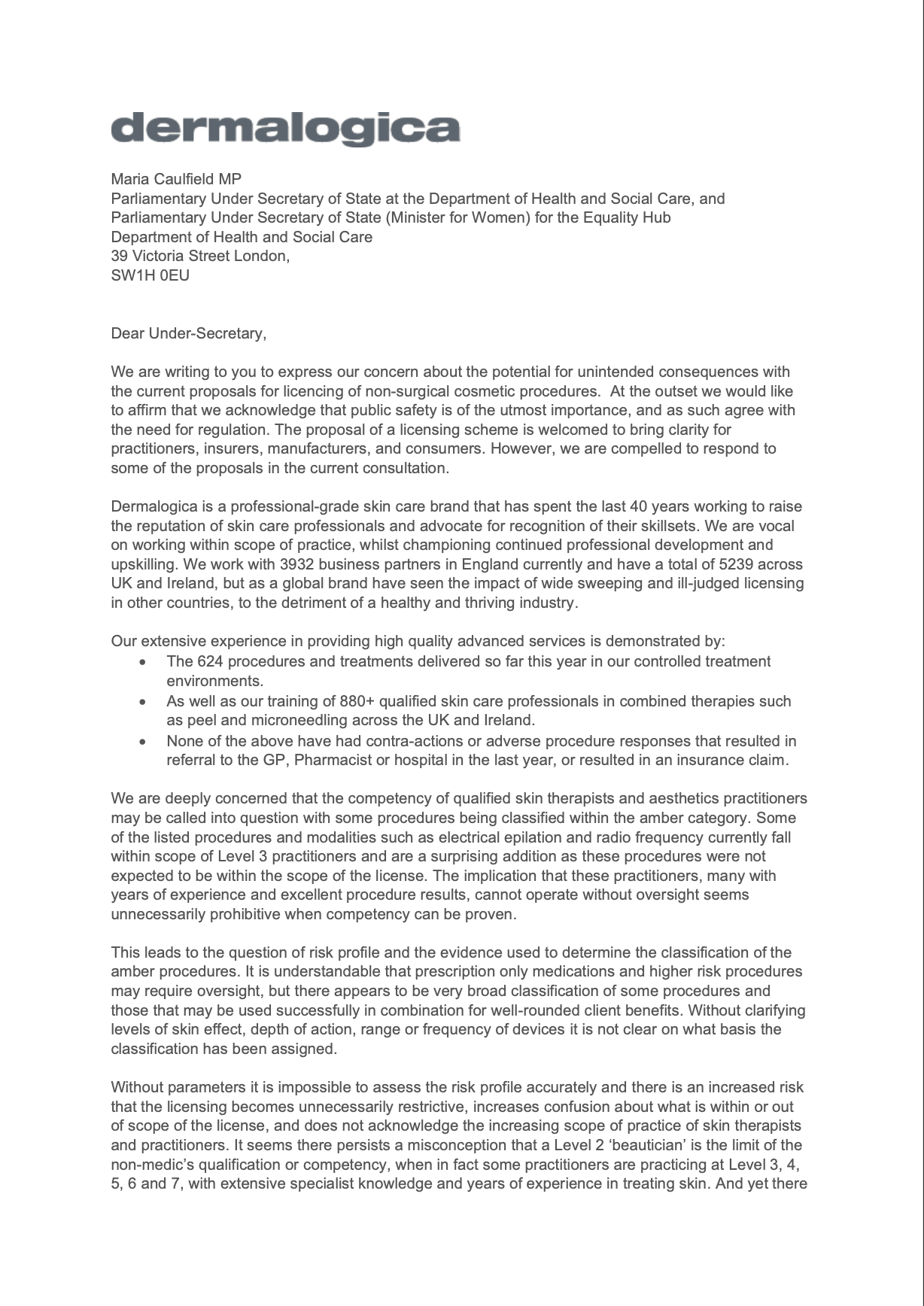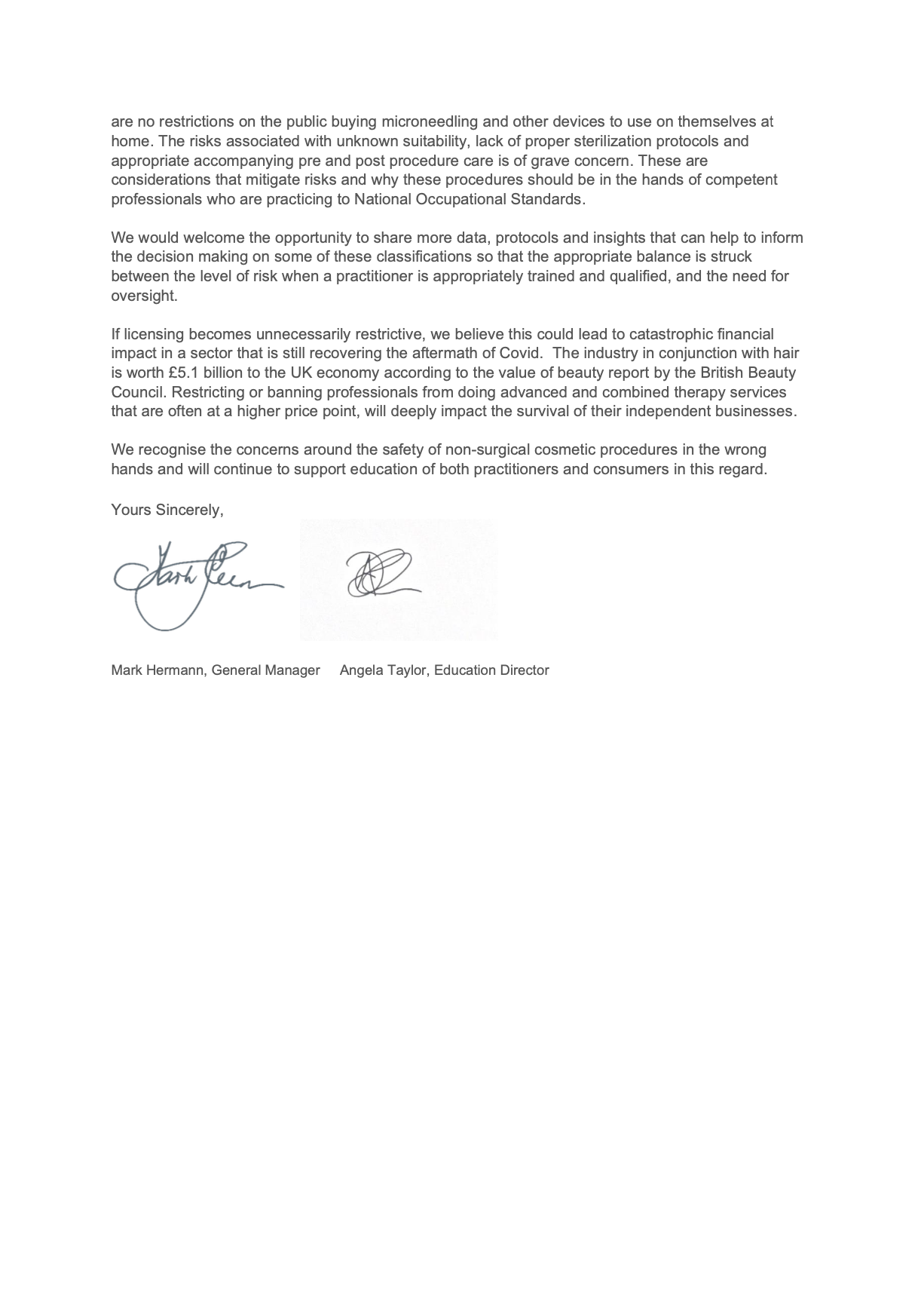Dermalogica calls on Government to reassess licensing of non-surgical cosmetic procedures
Professional-grade skincare brand Dermalogica is urging the Government to reconsider its positioning on the licensing of some non-surgical cosmetic procedures.
The new licensing outlined by the Department of Health and Social Care will make it an offence to perform non-surgical cosmetic procedures without a license in England.
The purpose of this scheme is to ensure that consumers who choose to undergo a non-surgical cosmetic procedure can be confident that the treatment they receive is safe and of a high standard.
However, Dermalogica has expressed its concern that the competency of qualified skin therapists and aesthetics practitioners may be called into question with some procedures being classified within the licensing.
This includes various policies within the amber category, which covers procedures classified as medium risk of complications.
According to licensing, non-healthcare professionals must be licensed and have relevant oversight by a named regulated healthcare professional (who has gained an accredited qualification to prescribe, administer and supervise aesthetic procedures) to perform procedures within the amber category.
To address this, Dermalogica has sent an open letter to Maria Caulfield MP, the Parliamentary Under Secretary of State at the Department of Health and Social Care.
"We are writing to express our concern about the potential for unintended consequences with the current proposals for licensing of non-surgical cosmetic procedures. The proposal of a licensing scheme is welcomed to bring clarity for practitioners, insurers, manufacturers, and consumers. However, we are compelled to respond to some of the proposals in the current consultation," the open letter reads.
"Some of the listed procedures and modalities such as electrical epilation and radio frequency currently fall within scope of Level 3 practitioners and are a surprising addition as these procedures were not expected to be within the scope of the license. The implication that these practitioners, many with years of experience and excellent procedure results, cannot operate without oversight seems unnecessarily prohibitive when competency can be proven.
"This leads to the question of risk profile and the evidence used to determine the classification of the amber procedures. It is understandable that prescription only medications and higher risk procedures may require oversight, but there appears to be very broad classification of some procedures and those that may be used successfully in combination for well-rounded client benefits. Without clarifying levels of skin effect, depth of action, range or frequency of devices it is not clear on what basis the classification has been assigned.
"Without parameters it is impossible to assess the risk profile accurately and there is an increased risk that the licensing becomes unnecessarily restrictive, increases confusion about what is within or out of scope of the license, and does not acknowledge the increasing scope of practice of skin therapists and practitioners."
Dermalogica said it welcomes the opportunity to share more data, protocols and insights to help inform the decision making on some of the classifications, ensuring that "the appropriate balance is struck between the level of risk when a practitioner is appropriately trained and qualified, and the need for oversight".
The brand is also concerned that if licensing becomes unnecessarily restrictive, this could lead to "catastrophic" financial impact in a sector that is still recovering from the pandemic.
"Restricting or banning professionals from doing advanced and combined therapy services that are often at a higher price point, will deeply impact the survival of their independent businesses," it added.








